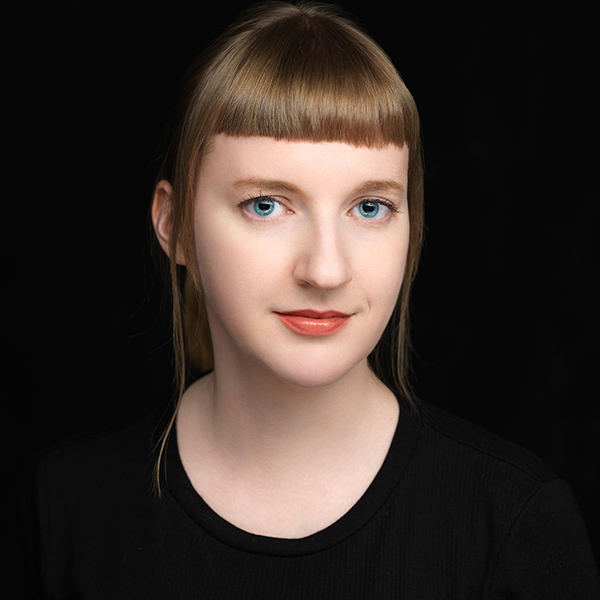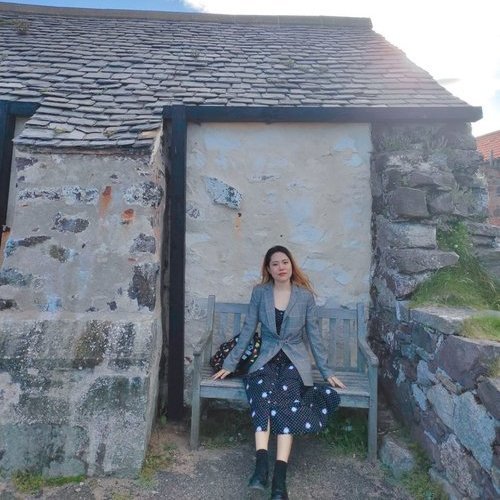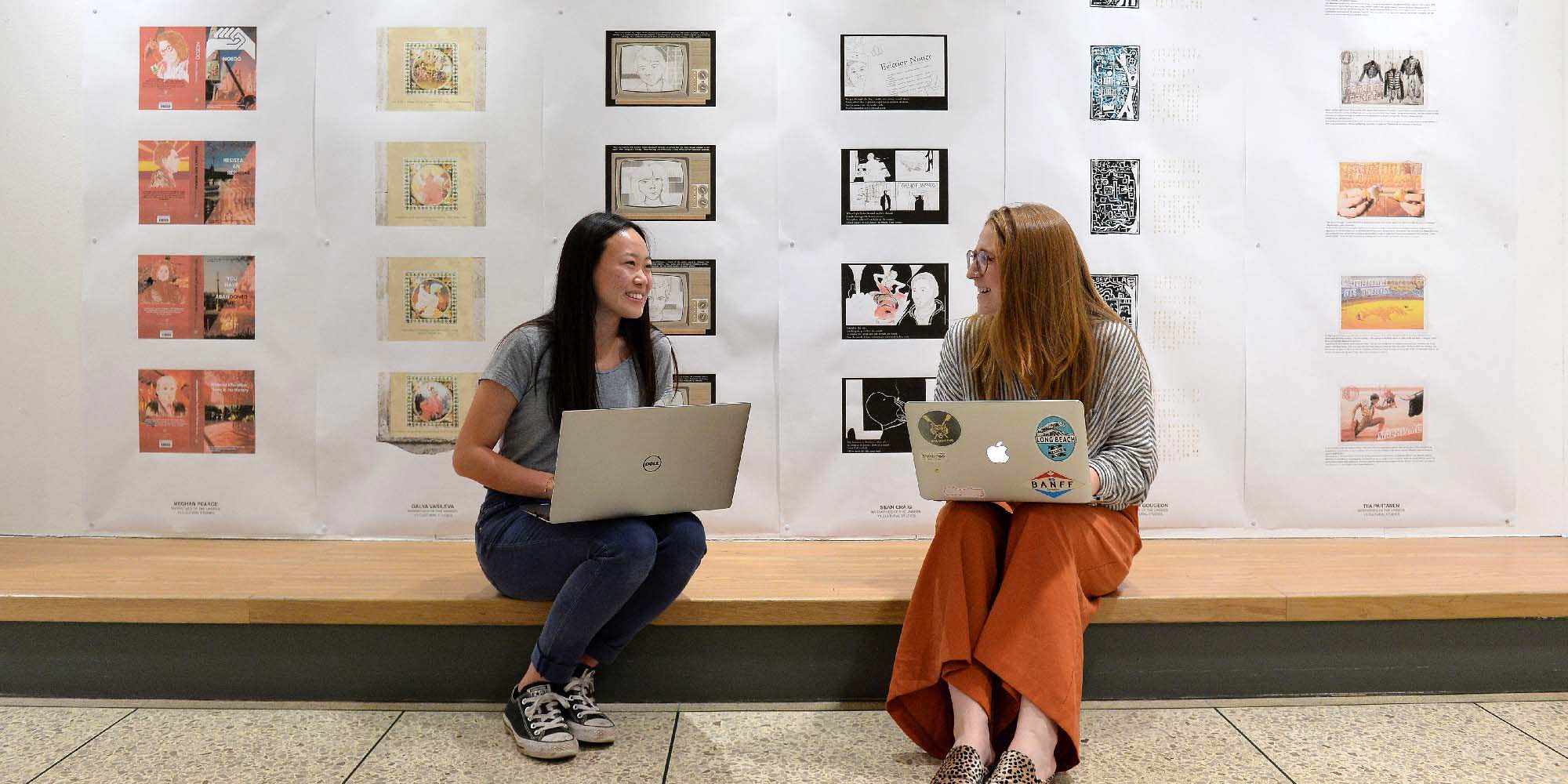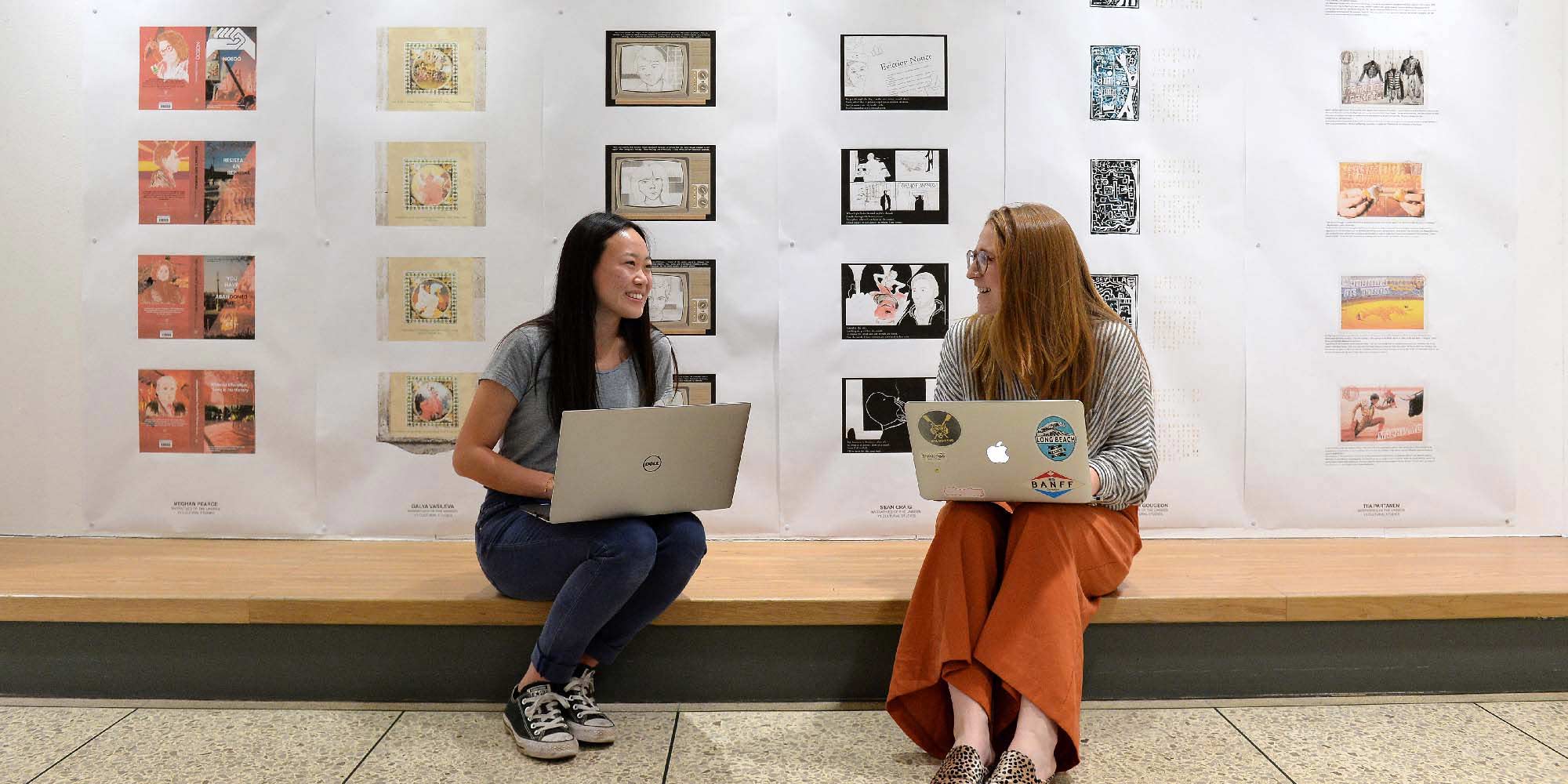MSc/PgDip/PgCert Health History
ApplyKey facts
- Start date: September
- Study mode and duration: MSc: 12 months full-time; 24 months part-time
PgDip: 9 months full-time; 18 months part-time
PgCert: 8 months part-time
Study with us
- develop your understanding of a range of issues, debates, and specialist topics in the history of health and medicine
- join and engage with an internationally-recognised community of scholars at Scotland’s largest centre for the history of medicine, the Centre for the Social History of Health and Healthcare (CSHHH)
- develop your transferable skills (for example communication, research, critical analysis, organisation, and time management) which will be useful for a range of spheres of employment including teaching, health policy and doctoral research
- apply historical understandings to contemporary issues regarding health, medicine and society
- undertake an original piece of research on the topic of your choosing with support from an expert in the field
Why this course?
The MSc in Health History is a research-led postgraduate programme which seeks to introduce students to a range of issues, controversies, debates, and specialist topics in the history of health and medicine. It provides specialist modules, taught by experts in the field; a sources and methods module which engages with both practical and intellectual issues in the history of medicine and of health and healthcare; and the opportunity to carry out an extended piece of original historical research and writing in the form of the dissertation. Students have the opportunity to explore a variety of themes such as:
- the development of psychiatry since the 19th century
- understandings of meat-eating and vegetarianism
- the history of gender, sexuality and health
- the rise of regulation for drugs and medicines
- the role of film, video and television in the production, communication and contestation of medical and health-related knowledge
- how nutrition has been and continues to be one of the most controversial areas of health and medicine
- oral history theory and research practices
- the role of medicine in the emergence of ‘modern’ forms of warfare
- the relationship between heritage, health and tourism
- the often-vexed relationship between medicine, the public, and the state
- how the media presents and frames health behaviours and its impact on media consumers


Interested in postgraduate study?
At the Faculty of Humanities and Social Sciences, our friendly and knowledgeable team will be available to provide you with all the information you need to kick-start your postgraduate journey at the University of Strathclyde. Register for upcoming events below:
What you’ll study
In your first semester you will take our core module, Research Skills, Sources and Methods for Historians, as well as two specialist modules of your choosing. Research skills, Sources, and Methods for Historians equips you with the skills you need to conduct your own research as well as grounding you in the different methodologies and approaches to history. In your second semester you will take 3 specialist modules of your choosing. Every year we offer a variety of modules (see our list of ‘optional classes’ further down this page). You’ll also conduct our own original piece of historical research - a 15,000 word dissertation - with the support of a CSHHH staff member.
CSHHH Seminar Series
The CSHHH Glasgow seminar series is designed to showcase the latest research from across the subject area at the centre. Every year, we host international experts in the field who talk about their cutting-edge research. More information on our current seminar series here.
Teaching staff
Teaching and research training is provided by staff of the Centre for the Social History of Health and Healthcare (CSHHH) Glasgow. Key staff include:
- Professor Matthew Smith, Programme Director of the MSc in Health History, University of Strathclyde
- Dr Patricia Barton, Lecturer in History, University of Strathclyde
- Dr Petya Eckler, Senior Lecturer in Journalism, Media and Communication, University of Strathclyde.
- Dr Catriona Ellis, Teaching Associate, University of Strathclyde
- Professor Erica Fudge, Professor of English, University of Strathclyde
- Dr Laura Kelly, Senior Lecturer in the History of Health and Medicine and Co-Director of the CSHHH, University of Strathclyde
- Professor Arthur McIvor, Professor in Social History, University of Strathclyde and Director of the Scottish Oral History Centre
- Professor Jim Mills, Professor of Modern History, University of Strathclyde
- Dr Emma Newlands, Senior Lecturer in History, University of Strathclyde
- Dr Elsa Richardson, Chancellor’s Fellow in the History of Health and Wellbeing, University of Strathclyde

I was lucky to meet like-minded people on my course and form a great support network throughout the year. My professors have all been wonderful and provided positive and constructive feedback on my work, which helpful and encouraging.
In the age of COVID-19, the history of health and medicine has never been more important. The MSc in Health History will allow you to develop your understandings of a range of issues relating to the history of health and medicine which have much contemporary relevance. As well as developing your knowledge, honing your transferable skills and undertaking your own original piece of research, you’ll also join a lively and passionate community of scholars working in the field.”
Dr Laura Kelly, Senior Lecturer in the History of Health & Medicine

Research Skills, Sources & Methods for Historians.
You'll be introduced to methodological and practical issues in historical research.
Dissertation Preparation
This module provides a structured approach to preparing Masters students for their dissertation projects. The nature of the class is to ensure that students can make use of the time dedicated to dissertation preparation in Semester 2 by following a structured programme focused on productive supervisory conversations and assessments targeted at supporting them towards robust and innovative dissertation research.
Five to be chosen.
Advanced Oral History
Advanced Oral History allows students to explore advanced oral history theory and practices as a valuable means of understanding the past. In weekly seminars, we will examine the advantages and limitations of oral history as both a research methodology and an outcome by reading and discussing key texts written by leading oral historians and related practitioners. In addition, students will gain practical experience designing and implementing a mini oral history project directly related to their postgraduate dissertations.
By the end of the semester, students will have submitted their dissertation project proposals for ethics approval, and gained preliminary experience in conducting and analysing an interview of relevance to their dissertation topic. Students seeking careers in history, museum studies, human rights advocacy, international law, diplomacy, and journalism will find this course particularly relevant.
Pharmaceuticals, Ethics and Health: 1800-1980
This class analyses core debates in the History of Pharmaceutical Science and the History of the Pharmaceutical Industry.
It uses a series of cases studies including: the establishment of pharmacology as a medical science, standardisation and the quality of medications, the globalisation of the medicinal market, pharmaceutical legislation, drug scandals and the politics of pharmaceutics.
Through analysis of the historiography and primary materials, students will engage with the ethical debates which have accompanied the rise of the pharmaceutical industry as a global giant.
Governing Highs & Health: History & the Control of Drugs, c.1800-1945
This class examines key moments in the development of modern systems of regulating drugs.
With a focus on western countries since 1800, it explores the political, social and economic contexts of decisions to control and restrict the consumption of both psychoactive and pharmaceutical products.
The objective is to place state enquiries, legislative projects and international agencies in historical context.
Medicine and Warfare, 1800-2000
This class analyses the role of medicine in the emergence of ‘modern’ forms of warfare, particularly the vital contribution that medicine made to manpower economy, discipline and morale.
It explores the ways that different countries have responded to the medical issues posed by modern warfare, the key objective being to place these military-medical developments within wider social, cultural and political contexts.
Food and Health in the West during the 20th Century
The aim of this class is for students to explore how dietary influences on health have been perceived in the West during the 20th century.
Nutrition has been and continues to be one of the most controversial areas of health and medicine and one of the goals of this module is to examine why this has been the case.
Gender, Health and Modern Medicine Since 1800
This class explores the complex interactions between medicine, gender, health and illness in the 19th and 20th centuries. You'll explore the key role that gender has played in the emergence of modern healthcare and medicine in a variety of settings, such as Britain, Ireland and the United States. You'll also examine a diverse range of topics to assess how men and women, and concepts of femininity and masculinity were defined by the medical profession and how responses to men and women’s health issues became increasingly gendered over time.
As well as developing your critical thinking skills through engagement with the secondary literature on these themes, you'll have the opportunity to get to grips with a variety of primary sources such as women’s magazines, advertisements, films, medical journals and oral histories.
Work Placement in History
This class is designed to help students reflect on the subject specific and transferable skills they have acquired through their academic journey, articulate them to a potential employer and apply them in the workplace. This module aims to provide students with an insight into the day to day workings of an organisation, in order to develop history-specific vocational skills and promote reflection on employability and also on the issues involved in disseminating history outside academia. The class offers students the opportunity of spending eight weeks in a placement of their choice with museums, archives, historical associations, third sector organisations, university professional services. Placements are provided but students who have already identified an organisation or project they would like to work with, can discuss this with the class lecturer. Students will be asked to complete a small project or piece of research for their host. Assessment for this class include an initial work plan and a reflective essay on the student's work experience.
Fleshy Histories: Meat Eating & Meat Avoidance, 1500 to the Present
This class will engage students with literary and historical materials, and with theoretical work from animal studies and ecofeminism. This will inform discussions about the place, meaning and function of meat eating and meat avoidance, and debates about human-animal relations, from the early modern to the modern world.
As well as philosophical and religious work you'll read a range of primary materials, including literary works from A String of Pearls (aka Sweeney Todd) to Roald Dahl’s Pig; from Swift’s Modest Proposal to Coetzee’s Lives of Animals, via Dracula, and develop skills in textual analysis and critical and theoretical engagement.
Media & Health
The topic of health is a constant fixture in the media through news and features, documentaries, talk shows, and more. Audience demand for health information is high, as is the relevance of this coverage to their lives, and therefore the responsibility of journalists towards their audiences. This class will highlight all these issues and emphasize many of the inherent conflicts in health journalism and heath communication.
The goal of this class is to examine the potential and limits of the media to accomplish health education of the public. We will examine how both information and entertainment media present and frame various health behaviours and how that affects media consumers. We will look at how theories, models, and assumptions of mass communication relate to public health issues. Topics to be covered include scientific inquiry, the media vs. science, framing illness, body image, stigma, entertainment education, mythologizing doctors, and others.
Assessment will include three pieces: a research paper on the media coverage of a health issue chosen by the student, a research paper on the public knowledge of the same health issue, and a poster presentation of the findings from the two research papers.
Dissertation
The dissertation is an exercise in independent study. You will research a topic of your choice, under the supervision of an expert member of the programme staff. You will make full use of primary and secondary source material, including the identification and use of relevant archival holdings. While guidance will be provided by the supervisor, you will propose the area of study, compile an adequate bibliography, and take all initiatives necessary to carry out the work.
Entry requirements
| Academic Requirements | First or second-class Honours degree, or overseas equivalent, in History or a related discipline |
|---|---|
| English language requirements | Please check our English requirements before making your application. |
Pre-Masters preparation course
The Pre-Masters Programme is a preparation course held at the University of Strathclyde International Study Centre, for international students (non-UK/Ireland) who do not meet the academic entry requirements for a Masters degree at University of Strathclyde.
Upon successful completion, you'll be able to progress to this degree course at the University of Strathclyde.
Please note: Previous Maths & English qualifications and your undergraduate degree must meet GTCS minimum entry requirements as well as the pre-Masters course and an interview will be conducted before an offer can be made.
Chat to a student ambassador
If you want to know more about what it’s like to be a Humanities & Social Sciences student at the University of Strathclyde, a selection of our current students are here to help!
Our Unibuddy ambassadors can answer all the questions you might have about courses and studying at Strathclyde, along with offering insight into their experiences of life in Glasgow and Scotland.
Chat to a student ambassador
I want to say to all international students from China, study English hard, and don’t be shy, try to communicate with people. At Strathclyde, you will have an unforgettable experience and gain an international education and English language training, with social and cultural activities.
Faculty of Humanities & Social Sciences Scholarships
- EU Engagement Scholarships are available to EU applicants who would have previously been eligible for Home (Scottish/EU) fee status.
- International Postgraduate Taught Scholarships worth between £4,000 and £5,000 are open to applications from non-EU international applicants beginning full-time, face-to-face programmes.
Fees & funding
All fees quoted are per academic year unless stated otherwise.
Fees may be subject to updates to maintain accuracy. Tuition fees will be notified in your offer letter.
All fees are in £ sterling, unless otherwise stated, and may be subject to revision.
Annual revision of fees
Students on programmes of study of more than one year (or studying standalone modules) should be aware that tuition fees are revised annually and may increase in subsequent years of study. Annual increases will generally reflect UK inflation rates and increases to programme delivery costs.
| Scotland, England, Wales, Northern Ireland & Ireland | Mlitt or MSc: Full time - £8,700 PgDip: Full time - £5,800 PgCert: £2,900 *Please note Year 2 fee will be subject to an increase |
|---|---|
| International | £19,600 |
| Available scholarships | Tuition fee reduction of 25% for NHS employeesThe Faculty of Humanities & Social Sciences is offering a fee reduction of up to 25% to employees of NHS partner agencies. Find out more about the 25% tuition fee reduction for NHS employees. Take a look at our scholarships search for funding opportunities. |
| Additional costs | International students may have associated visa and immigration costs. Please see student visa guidance for more information. |
Please note: the fees shown are annual and may be subject to an increase each year. Find out more about fees.
How can I fund my course?
Scottish postgraduate students
Scottish postgraduate students may be able to apply for support from the Student Awards Agency Scotland (SAAS). The support is in the form of a tuition fee loan and for eligible students, a living cost loan. Find out more about the support and how to apply.
Don’t forget to check our scholarship search for more help with fees and funding.
Students coming from England
Students ordinarily resident in England may be to apply for postgraduate support from Student Finance England. The support is a loan of up to £10,280 which can be used for both tuition fees and living costs. Find out more about the support and how to apply.
Don’t forget to check our scholarship search for more help with fees and funding.
Students coming from Wales
Students ordinarily resident in Wales may be to apply for postgraduate support from Student Finance Wales. The support is a loan of up to £10,280 which can be used for both tuition fees and living costs. Find out more about the support and how to apply.
Don’t forget to check our scholarship search for more help with fees and funding.
Students coming from Northern Ireland
Postgraduate students who are ordinarily resident in Northern Ireland may be able to apply for support from Student Finance Northern Ireland. The support is a tuition fee loan of up to £5,500. Find out more about the support and how to apply.
Don’t forget to check our scholarship search for more help with fees and funding.
International students
We've a large range of scholarships available to help you fund your studies. Check our scholarship search for more help with fees and funding.
International students
We've a thriving international community with students coming here to study from over 140 countries across the world. Find out all you need to know about studying in Glasgow at Strathclyde and hear from students about their experiences.
Visit our international students' section
Apply
Start date: Sep 2024
Health History
Start date: Sep 2024
Health History
Start date: Sep 2024
Health History
Start date: Sep 2024
Health History
Start date: Sep 2024
Health History
Contact us
Prospective student enquiries
Contact a member of our team on LiveChat between 10am and 4pm (GMT)
Telephone: +44 (0) 141 444 8600
Have you considered?
We've a range of postgraduate taught and Masters courses similar to this one which may also be of interest.

